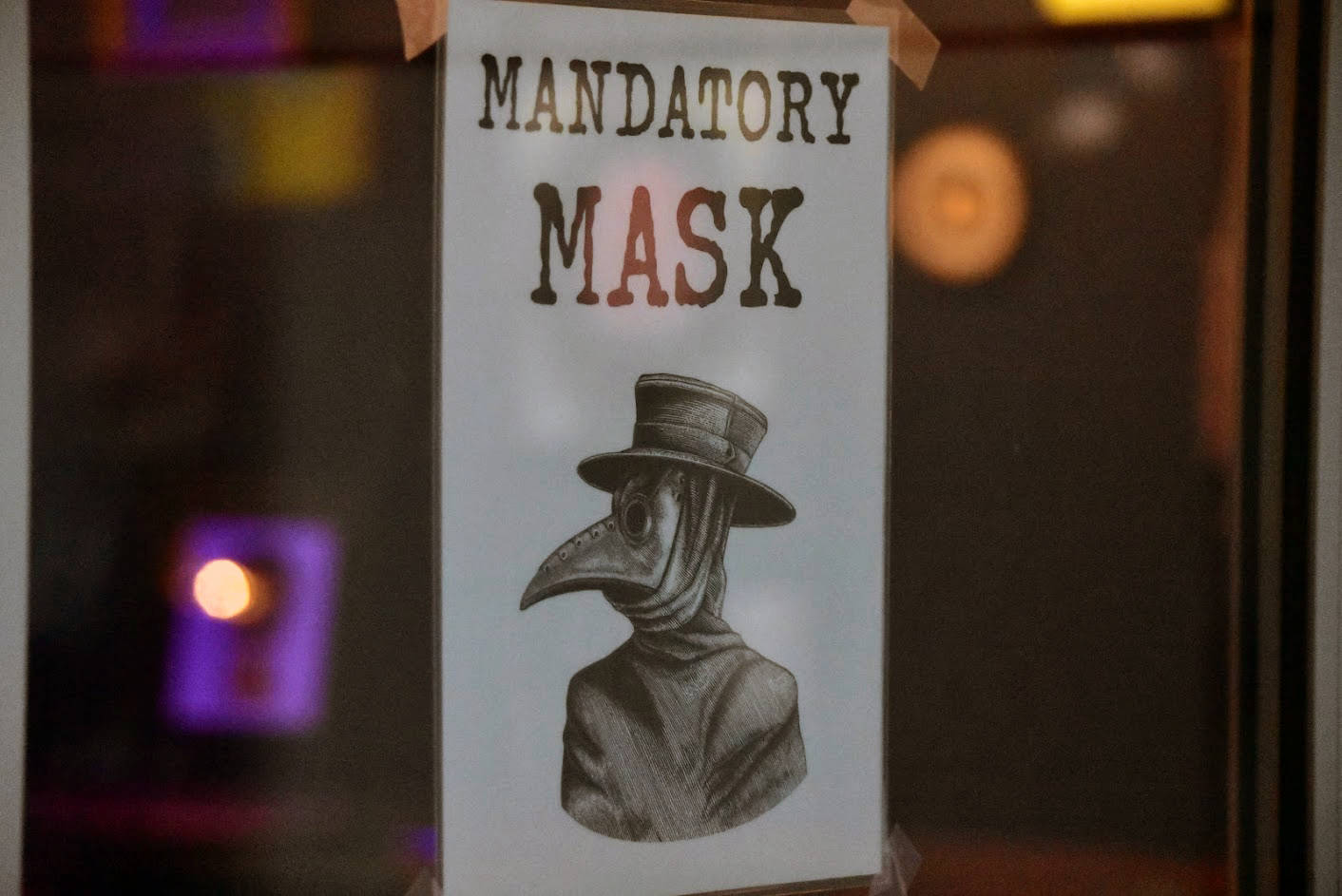As the percentage of vaccinated community members rises, officials are looking to the future and considering which COVID-19 mitigations to jettison and when.
Bottom line: Keep your face mask handy. Feel free to consider scheduling a large gathering and tell your unvaccinated, out-of-town friends that they might need to get a COVID-19 test upon arrival when visiting Juneau.
At Monday night’s Committee of the Whole meeting, Mila Cosgrove, deputy city manager and the COVID-19 emergency operations center incident commander, shared a potential path forward with assembly members. The assembly will vote on the recommendations — and a travel-based amendment that was added at the meeting — on April 26.
“The pandemic is still a part of our community, but the face of it is changing,” Cosgrove said.
Cosgrove predicted that by May 13, half of Juneau’s population will be fully vaccinated and said the city is moving in the right direction.
Based on the growing vaccination numbers, she suggested adding subcategories of mitigations to follow when community transmission is low, but vaccine rates are high. She also recommended observing all state travel mandates rather than carving out city-specific rules.
[CBJ introduces new vaccine strategy]
City to mull requiring travel testing beyond May 1
Some assembly members expressed concern over following the state travel mandates, which are still evolving.
Assembly member Greg Smith proposed amending the proposal’s travel section to require unvaccinated travelers to take a COVID-19 test upon arrival at the airport rather than allowing the current testing requirement lapse on May 1.
The amendment passed despite no votes from Mayor Beth Weldon and Assembly members Wade Bryson and Loren Jones.
“I think this does a good job of threading the needle of letting independent travelers in and still collecting data,” said assembly member Alicia Hughes-Skandijs, who supported the amendment.
Weldon, Bryson and Jones expressed concern that extending the testing requirement could make Juneau a less desirable travel destination this summer.
“The governor just announced an advertising campaign to bring people here, and if we go forward, this could put a monkey wrench in it,” Bryson said.
Face masks required for now
The proposed mitigation strategies all include some element of mask-wearing in public places.
“Ideally, it would be nice to say that if you are vaccinated, you don’t need to wear a mask,” Cosgrove said, adding that Juneau is ahead of many communities in reaching relatively high vaccination rates.
“As guidance changes, we will come back to you,” she said.
Based on the proposed guidelines, the level 1 — or low-risk category — would be broken into three categories based on citywide vaccination levels.
[Dunleavy asks White House to allow cruises]
Proposed level 1 tiers
Using the proposed guidelines, Juneau is currently at risk level 1a, which means that transmission is low, but less than 50% of the total population is vaccinated. At this risk level, face masks and social distancing are required in public places, except for eating and drinking in restaurants. Gatherings are limited to 100 people.
Based on the current trajectory, Juneau will move to risk level 1b in mid-May when at least 50% but less than 70% of the total population is vaccinated. In that status, masks and social distancing measures must be taken when unvaccinated people may be present. Indoor gatherings should be limited to the number of participants that will allow six feet of social distancing to be maintained and masks are required. Outdoor gatherings are recommended, but there are no limits or required safety measures if all individuals at the gathering are fully vaccinated.
Cosgrove said that in tier 1b, she could see retail shops and gyms offering special hours where fully vaccinated people could gather without masks. She said small office groups might also relax mask requirements during this phase.
After 70% of the city’s total population is vaccinated, the risk level would move to 1c. At that level, masks must be worn indoors in public areas when children who are too young to be vaccinated are present. Currently, vaccines are approved for children age 16 and up. The testing and approval process is underway for vaccine use in younger children but a timeline for approval remains unclear.
While there would be no size limitations on gatherings, masks must be worn indoors when vaccine-ineligible children are present. There are no limits or required safety measures if all individuals at the gathering are vaccinated.
In this scenario, masks would still be required in restaurants when not actively eating or drinking. However, masks could be removed in bars because no children are present.
Finding the right number
Weldon expressed concern about the threshold of having 70% of the total population vaccinated rather than 70% of the eligible population before relaxing mask-wearing requirements. She said that Anchorage had recently announced a plan to relax mandates once 70% of the eligible population is vaccinated.
“My concern is that we keep telling the population that we need to get to 70% vaccinated, but we aren’t ever going to attain that,” Weldon said.
Cosgrove said that reaching 70% of the population is possible.
Assembly member Christine Woll said that she did not think the proposed relaxation of mitigations offered enough incentive for residents to get vaccinated.
• Contact reporter Dana Zigmund at dana.zigmund@juneauempire.com or (907)308-4891.

